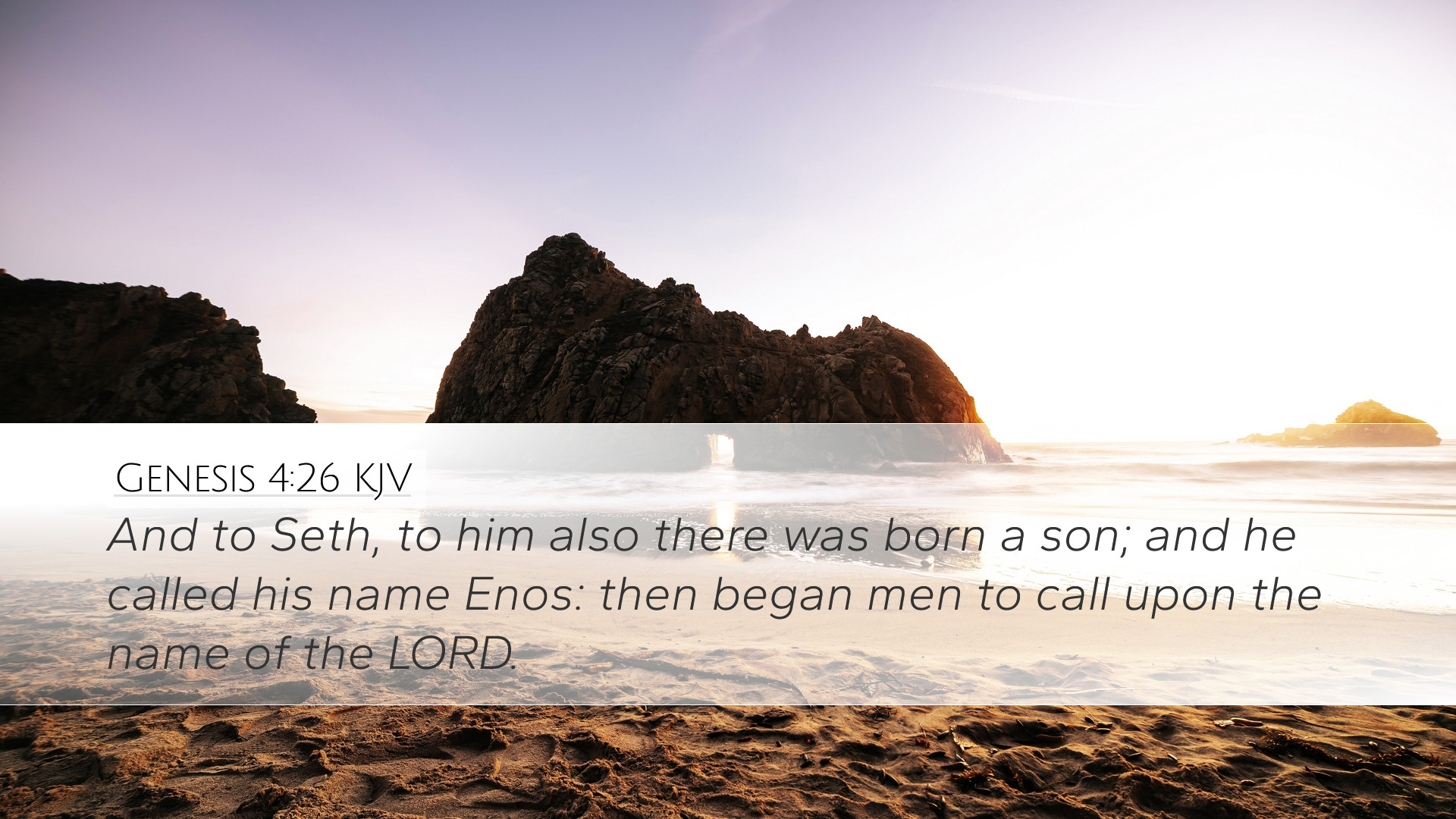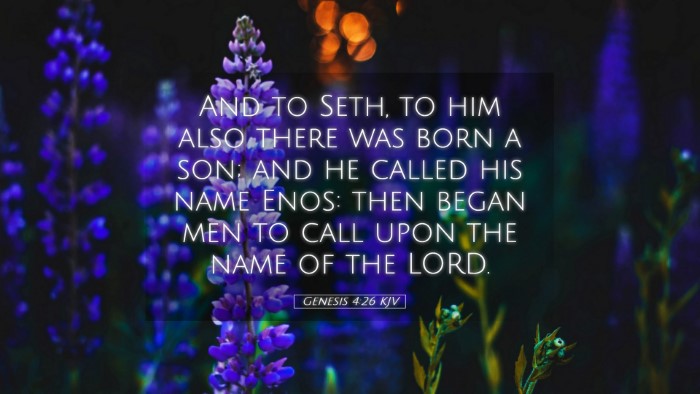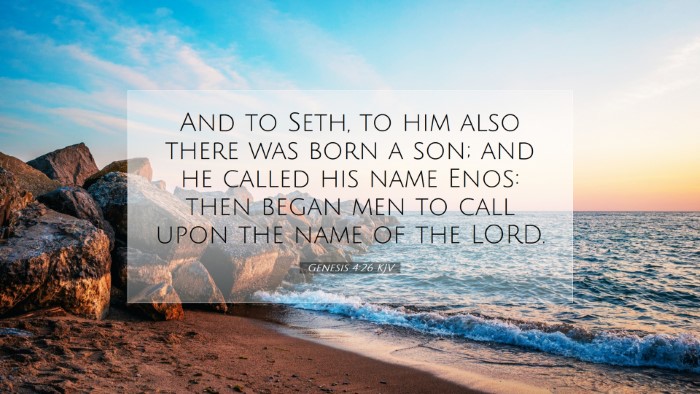Commentary on Genesis 4:26
Genesis 4:26 states: "And to Seth, to him also there was born a son; and he called his name Enos: then began men to call upon the name of the Lord." This verse is pivotal in understanding the progression of worship and the development of a community devoted to God.
Contextual Overview
This verse follows the lineage of Adam and Eve, focusing particularly on Seth, whom God appointed as a replacement for Abel after Cain killed him. The birth of Enos signifies a new generation and the continuation of the righteous line that stands in contrast to the wickedness represented by Cain.
Insights from Public Domain Commentaries
Matthew Henry's Commentary
Matthew Henry notes that the birth of Enos symbolizes a significant turning point in human history. He interprets the phrase "then began men to call upon the name of the Lord" as an indication that public and family worship began to flourish during this time. Henry points out that prior to this, worship may have been more informal and perhaps conducted within the confines of the family unit.
Albert Barnes' Commentary
Albert Barnes emphasizes the meaning of the name 'Enos', which means 'mortal man' or 'man of frailty'. He suggests that it reflects humanity's recognition of its own limitations and the need for divine assistance. This acknowledgment leads to communal prayer and the seeking of God’s favor. Barnes further explains that the calling upon the Lord implies a notable step toward organized worship and public acknowledgment of God, which is an essential development in the early biblical narrative.
Adam Clarke's Commentary
Adam Clarke provides an in-depth examination of the implications of communal worship. He states that the phrase "began to call upon the name of the Lord" indicates a collective movement towards faith. Clarke argues that this turning point characterized a shift from private acts of devotion to a public declaration of faith, suggesting that the worship community began to form a more structured practice of seeking God. He reinforces the notion that this was a response to the growing recognition of sin and the need for redemption.
Theological Import
This verse encapsulates a critical moment in biblical history as it marks the emergence of a faithful community. Scholars like Henry, Barnes, and Clarke collectively highlight several theological themes:
- The significance of lineage: The contrast between Seth's line and Cain’s is crucial, establishing a theme of divine preservation of faith amidst a backdrop of sin.
- Worship and community: The expression of calling upon the Lord signifies the importance of communal worship, which is foundational for later biblical practices.
- The acknowledgment of human frailty: Recognizing the limitations of humanity leads to dependence on God, a theme prevalent throughout scripture.
Applications for Today
For pastors, students, and theologians, this verse and its surrounding context offer rich material for several applications:
- Encouraging Worship: The text serves as an encouragement for modern believers to engage in both personal and communal worship, recognizing its importance in sustaining faith.
- Understanding our Human Condition: The acknowledgment of humanity's frailty reminds believers of their dependence on God's grace and necessarily directs their prayers toward divine assistance.
- Building Community: The early practices of calling upon the Lord foster a spirit of community that believers today can aspire to recreate, embracing corporate worship as a profound expression of faith.
Conclusion
Genesis 4:26 is more than a genealogical note; it is a profound summary of the transition to organized worship and communal identity among God’s people. The insights from Matthew Henry, Albert Barnes, and Adam Clarke provide a rich tapestry of understanding regarding the human experience intertwined with divine calling. This verse invites believers into a deeper exploration of their relationship with God and encourages collective recognition of His sovereignty.


